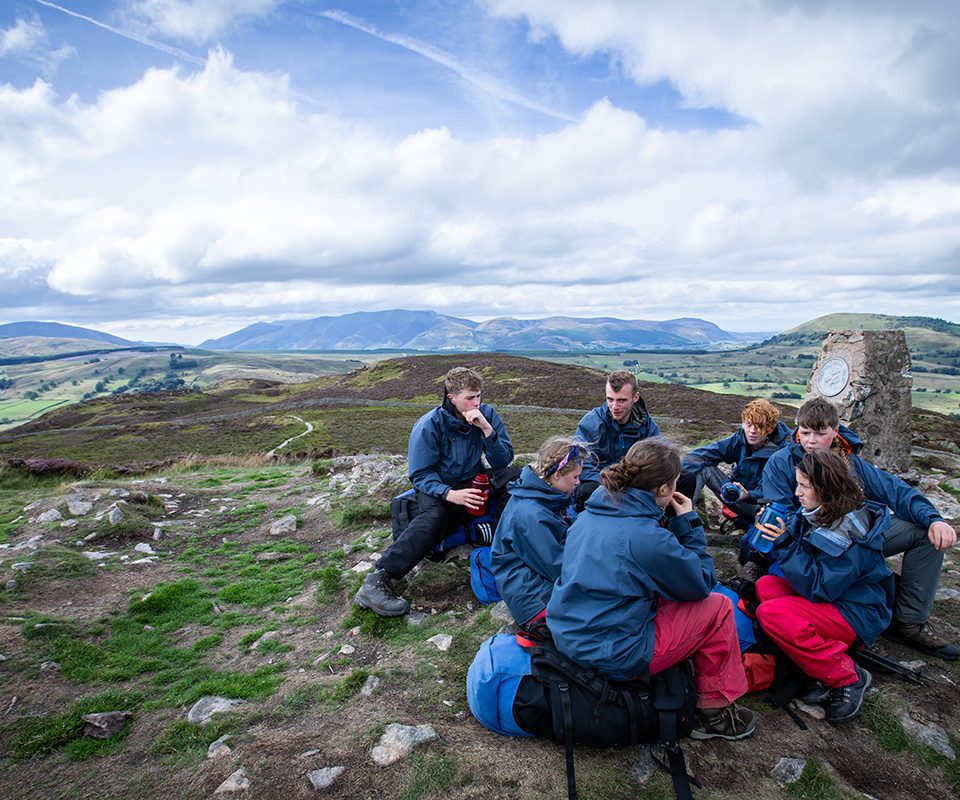Success!
Thank you for donating to The Outward Bound Trust!. Your first payment has been authorised and your subscription has been setup!
If you need to change your subscription details, please call us on +44 (0) 1931 740 000.
Failed!
Sorry, it looks like something went wrong whilst your payment was being processed. Please try again.
If you need help, please call us on +44 (0) 1931 740 000.
Mental health and resilience
Free report: mental health and resilience
Resilience: the ability to achieve positive outcomes despite challenging or threatening circumstances.
Young people growing up in the UK today face multiple barriers to living healthy, happy and successful lives.
Barriers such as a decline in emotional wellbeing and a rise in mental health issues. The growing attainment gap, political and economic uncertainty. A lack of preparedness for the workplace.
Understanding what it means to be resilient and how to strengthen young people’s resources of resilience is key to overcoming some of these challenges.
This report focuses on ways we can help young people build their resilience.
Download the report

Report Executive Summary
This report focuses on resilience – the ability to achieve positive outcomes despite challenging or threatening circumstances. Young people growing up in the UK today face multiple barriers to living healthy, happy and successful lives, including declining emotional wellbeing and a rise in mental health issues; a growing attainment gap; political and economic uncertainty; and a lack of preparedness for the workplace.
Understanding what it means to be resilient and how to strengthen young people’s resources of resilience is key to overcoming some of these challenges. In particular, half of diagnosable mental health conditions start before the age of 14 and one in eight young people aged 5 to 19 have at least one mental disorder. The relationship between mental health and resilience is a virtuous one: having good mental health and wellbeing is a contributing factor in resilience, and resilient individuals are more able to successfully navigate mental health problems.
Research into childhood resilience is clear: children and young people who are exposed to stressful life events and adversity stand significantly reduced chances of reaching their full potential as adults. These adversities are considered ‘risk factors’ – circumstances which increase the probability of poor outcomes for young people. They have a huge range of impacts – on a young person’s physical health; social and cognitive development; social determinants of health such as education, employment and income; and mental health and wellbeing.
Fortunately, not all young people exposed to risk factors experience poor outcomes. In fact, many children and young people who encounter stress and adversity fair well, and those that succeed in spite of adversity have been identified as being resilient; possessing certain strengths and benefiting from protective factors that help them overcome adverse conditions and thrive. There is a strong evidence base for the existence of key protective factors at the individual, family and community level, and these resources of resilience can reduce the impact of adversity on mental health. Research suggests that some of the most impactful protective factors are self-regulation and emotional adjustment, secure parent-child attachments, and social relations and social support.
As this range of resources indicates, resilience is best optimised when protective factors are strengthened across all three levels. When looking at ways to build young people’s resilience, it is important to think holistically, for example through the Public Health England (PHE) advocated ‘whole school approach’ to wellbeing or implementing overarching workplace practices. In addition, youth transitions, such as starting school, college or employment are key opportunities to help young people practice the skills and attitudes needed to be resilient. Developing psychological robustness through experiences of transitions in earlier years helps to mediate the impact of adversity in later life.
At The Outward Bound Trust, this is our area of expertise. We provide programmes for young people to develop their social and emotional skills at every stage of their education, from the end of primary school through to university and the early stages of employment. The skills that they develop are those that will play a pivotal role in how they successfully navigate transitions through school, and the challenges of adolescence and early adulthood. As the evidence suggests, this can help them to flourish in many different ways throughout their lives.
You might also like...
Social prescribing: do we really need the GP?
Education for wellbeing: Innovating school approaches to mental health
Outward Bound teaches young people new skills and self-reliance
Supporting young people's wellbeing in the workplace
More of this please: new research to focus on young people's mental health and wellbeing
Five ways the outdoors can boost mental wellbeing
How a residential trip was a turning point for one student’s mental health and wellbeing
We are determined that financial barriers should not be a limitation to young people experiencing Outward Bound. Last year we were able to support 80% of attendees with financial assistance from our bursary fund.
You can donate at any time to help us.
If you are a corporate organisation who would like to support our work, particularly around mental health and wellbeing read more here.